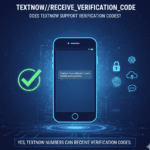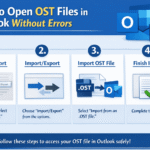Selling a Car with a History: How to Safely Market and Negotiate Your Accident-Involved Vehicle
- 1 How to Safely Market and Negotiate Your Accident-Involved Vehicle
- 1.1 Understanding Your Car’s Condition
- 1.2 Setting a Fair Price
- 1.3 Preparing the Car for Sale
- 1.4 Advertising the Car
- 1.5 Interacting with Potential Buyers
- 1.6 Handling the Paperwork
- 1.7 Safety Tips
- 1.8 Dealing with Special Situations
- 1.9 Marketing Strategies
- 1.10 Finalizing the Sale
- 1.11 FAQs:
- 1.11.1 Q: Should I hide the car’s accident history?
- 1.11.2 Q: How should I price my car with a history of accidents?
- 1.11.3 Q: Are there any legal requirements regarding disclosing accident history?
- 1.11.4 Q: What if my car has a salvage title?
- 1.11.5 Q: Should I accept cash payments?
- 1.11.6 Q: How can I advertise my car effectively?
- 1.11.7 Q: Can I sell my car ‘as is’ without disclosing issues?
- 1.11.8 Q: What if a potential buyer requests a test drive?
- 1.11.9 Q: Should I get the car professionally inspected before selling?
- 1.11.10 Q: What documents do I need for the sale?
- Transparency is Key: Be upfront about your car’s accident history and repairs to build trust with potential buyers.
- Set a Realistic Price: Research market value considering the vehicle’s history and be open to negotiation while setting a fair price.
- Safety First: Prioritize safety by meeting in public places, verifying buyer identity, and using secure payment methods to finalize the sale.
Cars with multiple accidents typically face unique challenges when entering the resale market. Potential buyers often approach such vehicles with heightened scepticism, primarily concerned about the car’s safety, ongoing reliability, and the potential burden of future repair costs. This apprehension is understandable, as a car involved in several accidents may be perceived as a riskier investment than a vehicle with a clean history.
Despite these hurdles, there’s a market for almost every vehicle, including those with a checkered past. You can effectively navigate these challenges with a strategic and honest approach to selling your car. By understanding buyers’ concerns and addressing them head-on, you can find the right buyer who sees the value in your vehicle, appreciates its worth, and is willing to make a fair purchase. The essential lies in transparency about the car’s history, a realistic assessment of its condition, and an effective strategy to communicate its remaining virtues to potential buyers.
How to Safely Market and Negotiate Your Accident-Involved Vehicle

Understanding Your Car’s Condition
- Complete and Honest Assessment: Start with thoroughly assessing your car’s condition. This includes understanding the extent of the damage from each reported car accident and any repairs that were done. A detailed inspection by a professional mechanic can provide a clear picture of the car’s current state.
- Gather Documentation: Collect all records of repairs and maintenance. This documentation should include details of the accidents, repairs undertaken, parts replaced, and regular maintenance. Comprehensive records can significantly increase a buyer’s confidence.
Setting a Fair Price
- Research Market Value: Understand the market value of your car model in its current condition. Websites like Kelley Blue Book or Edmunds can give you a ballpark figure. However, remember to adjust the price considering its accident history.
- Be Realistic: Set a realistic price that reflects your car’s history and condition. Overpricing a vehicle with a significant accident history can deter potential buyers.
Preparing the Car for Sale
- Make Necessary Repairs: Ensure that all safety-related repairs are completed. Non-critical cosmetic issues can be left as long as they are disclosed to the buyer.
- Clean and Detail: A clean, well-maintained appearance can make a solid first impression. Consider getting the car professionally detailed.
Advertising the Car
- Honest Listings: When creating your advertisement, be transparent about the car’s history. Honesty about the accidents and repairs can build trust with potential buyers.
- Highlight Positives: Focus on the positives – like recent repairs, new parts, or features still in excellent condition.
Interacting with Potential Buyers
- Be Open and Honest: During viewings, openly discuss the car’s accident history and repairs. Being upfront can build credibility with buyers.
- Allow Test Drives: Let buyers test drive the car, but ensure they have a valid driver’s license and consider accompanying them.
- Be Prepared for Negotiation: Be prepared to negotiate the price. Know your lowest acceptable offer in advance.
Handling the Paperwork
- Disclose the Accident History: In many places, it’s legally required to disclose a car’s accident history in writing. Even if it’s not, doing so is ethically correct and can protect you from future disputes.
- Transfer of Title: Ensure that the transfer of title is done correctly and legally. This might involve signing over the title, providing a bill of sale, and notifying the DMV.
Safety Tips
- Meet in Public Places: Choose public, well-lit areas for initial meetings. Avoid inviting strangers to your home or visiting secluded locations for test drives.
- Verify Buyer’s Identity: Ask for identification to verify the buyer’s identity. This can be important for your safety and record-keeping.
- Avoid Cash Transactions: Consider safer options like bank transfers or certified checks for payment. This minimizes the risk of fraud.
- Receipt and Bill of Sale: Provide a detailed bill that includes the vehicle’s condition and accident history. Ensure both parties sign it, and keep a copy for your records.
Dealing with Special Situations
- Trade-ins: If selling to a dealer as a trade-in, understand that the offer might be lower than selling to a private party. Dealers take into account the cost of repairs and the challenge of reselling.
- Selling ‘As Is’: You may sell the car ‘as is’. However, you still need to disclose all known problems to the buyer.
- Salvage Title: If your car has a salvage title (meaning it was declared a total loss by insurance), it must be clearly stated. Salvage titles significantly affect the value and insurability of a car.
Marketing Strategies
- Target the Right Audience: Consider your target market. Some buyers are specifically looking for lower-cost, repairable vehicles or parts.
- Online Platforms: Utilize various platforms like Craigslist, Facebook Marketplace, or specialized car-selling sites. These platforms have a broad reach and can connect you with interested buyers.
- Word of Mouth: Inform friends, family, and colleagues. Sometimes, the best buyers come through personal networks.
Finalizing the Sale
- Confirm Payment: Before handing over the keys, confirm the payment has been made and cleared.
- Transfer of Ownership: Complete all necessary paperwork for the transfer of ownership. This may include notifying your insurance company and returning license plates, if applicable.
- After-Sale Responsibilities: Be clear about any after-sale responsibilities. If there are no warranties or guarantees, make this clear to the buyer.
Selling a car that has been in multiple accidents is indeed more challenging than selling a car with a clean history. However, by being transparent, setting a fair price, and preparing thoroughly, you can find the right buyer for your vehicle. Remember, the key is in honest communication and a clear understanding of the vehicle’s condition. With these tips, you can navigate the process safely and effectively, ensuring a successful, satisfactory sale for you and the buyer.
FAQs:
Q: Should I hide the car’s accident history?
A: No, it’s essential to disclose all accidents and repairs honestly to potential buyers.
Q: How should I price my car with a history of accidents?
A: Research market values, consider the car’s condition, and adjust the price accordingly to reflect its history.
Q: Are there any legal requirements regarding disclosing accident history?
A: While laws vary by location, it’s generally considered ethical and often legally required to disclose accident history in writing.
Q: What if my car has a salvage title?
A: Clearly state the salvage title status, as it significantly affects the car’s value and insurability.
Q: Should I accept cash payments?
A: It’s safer to opt for bank transfers or certified checks to minimize the risk of fraud during transactions.
Q: How can I advertise my car effectively?
A: Utilize online platforms, word of mouth, and honest listings highlighting the car’s positives while disclosing its history.
Q: Can I sell my car ‘as is’ without disclosing issues?
A: No, it’s essential to disclose all known problems even when selling ‘as is’ to maintain transparency.
Q: What if a potential buyer requests a test drive?
A: Allow test drives with a valid driver’s license and consider accompanying the buyer for safety.
Q: Should I get the car professionally inspected before selling?
A: It’s advisable to get a detailed inspection by a professional mechanic to provide potential buyers with a clear picture of the car’s condition.
Q: What documents do I need for the sale?
A: Gather all repair and maintenance records, transfer of ownership paperwork, and a detailed bill of sale including the vehicle’s condition and accident history.

















